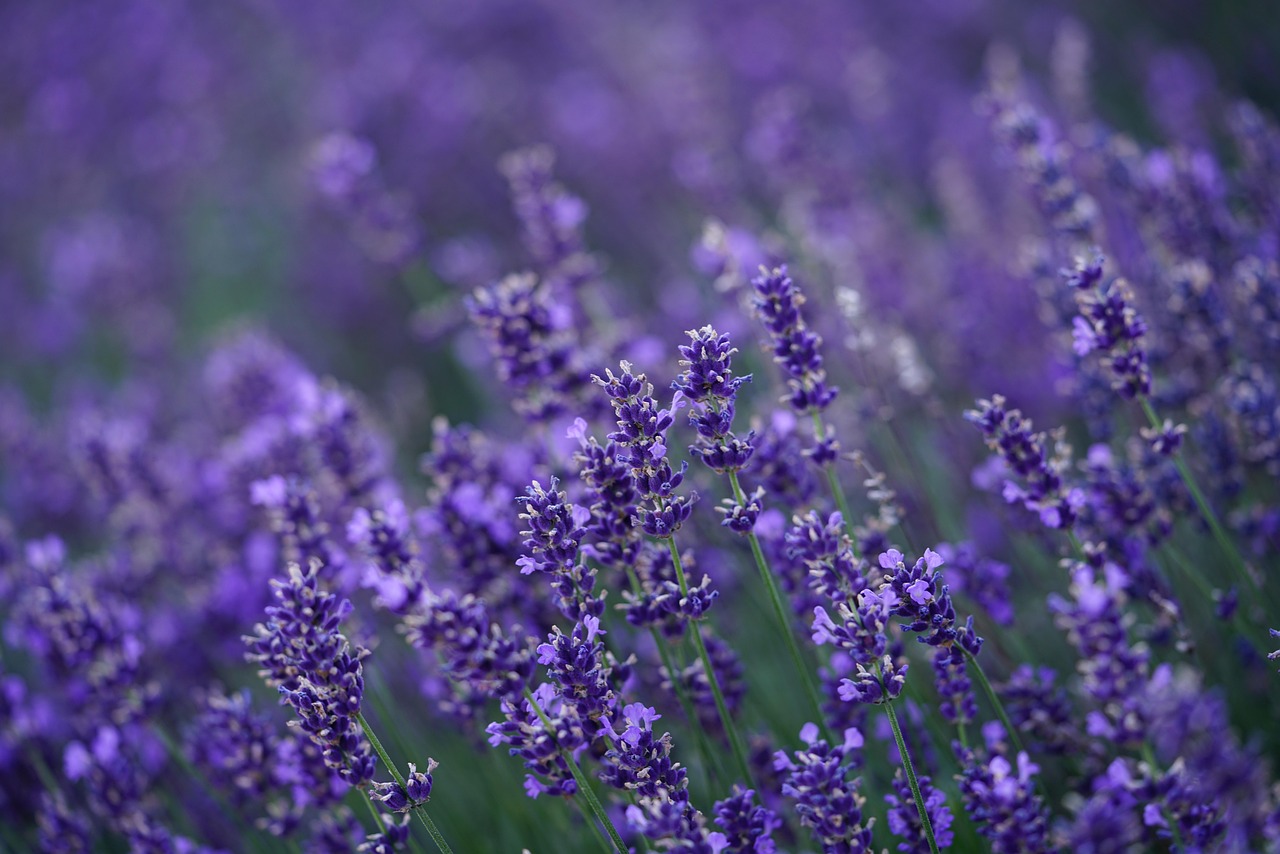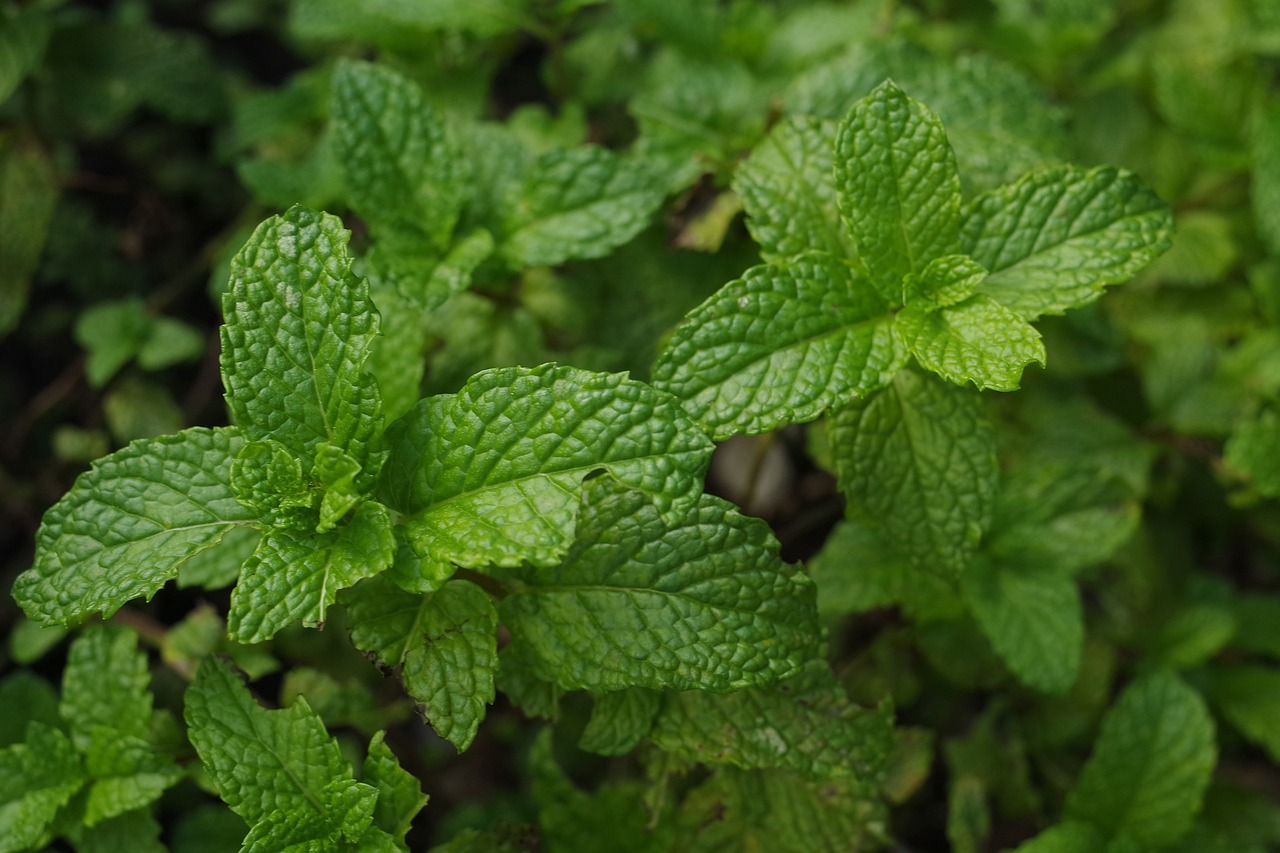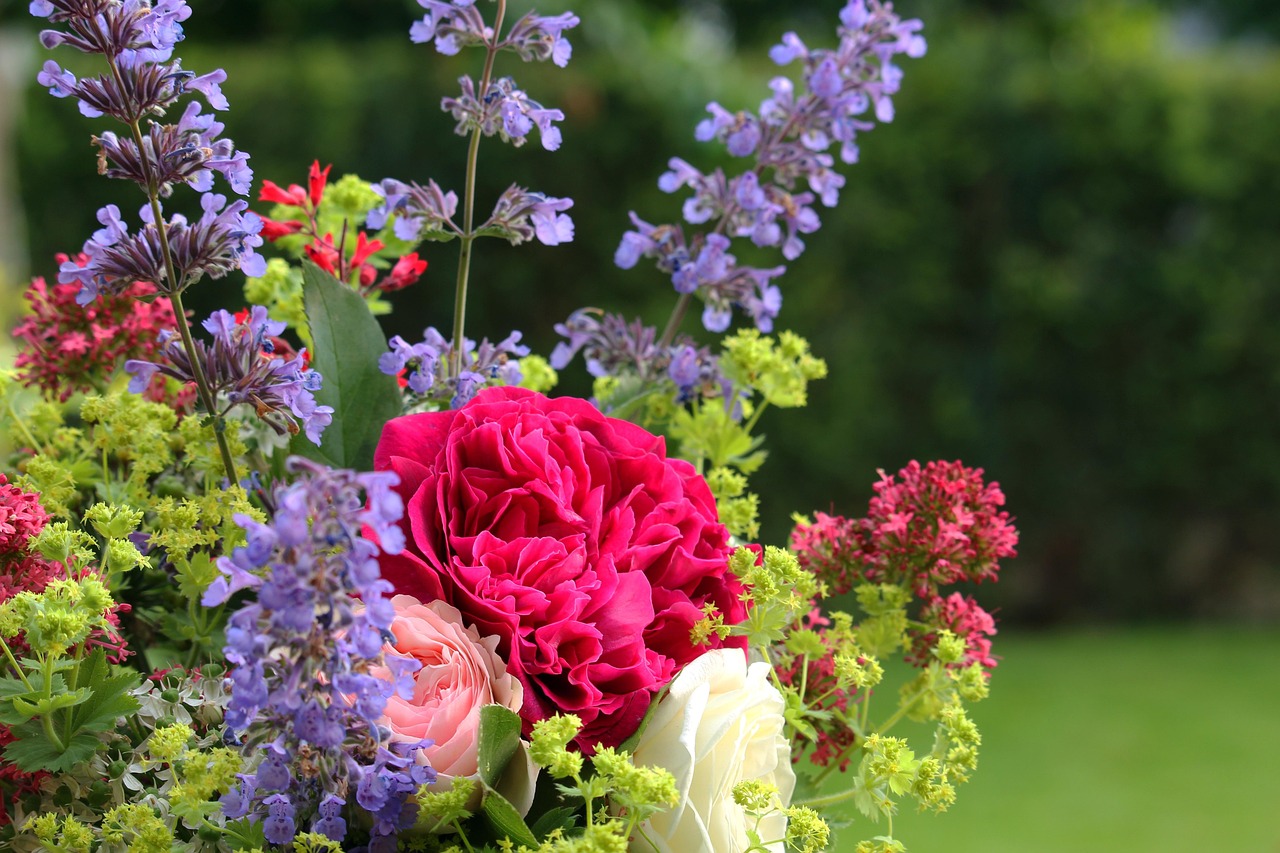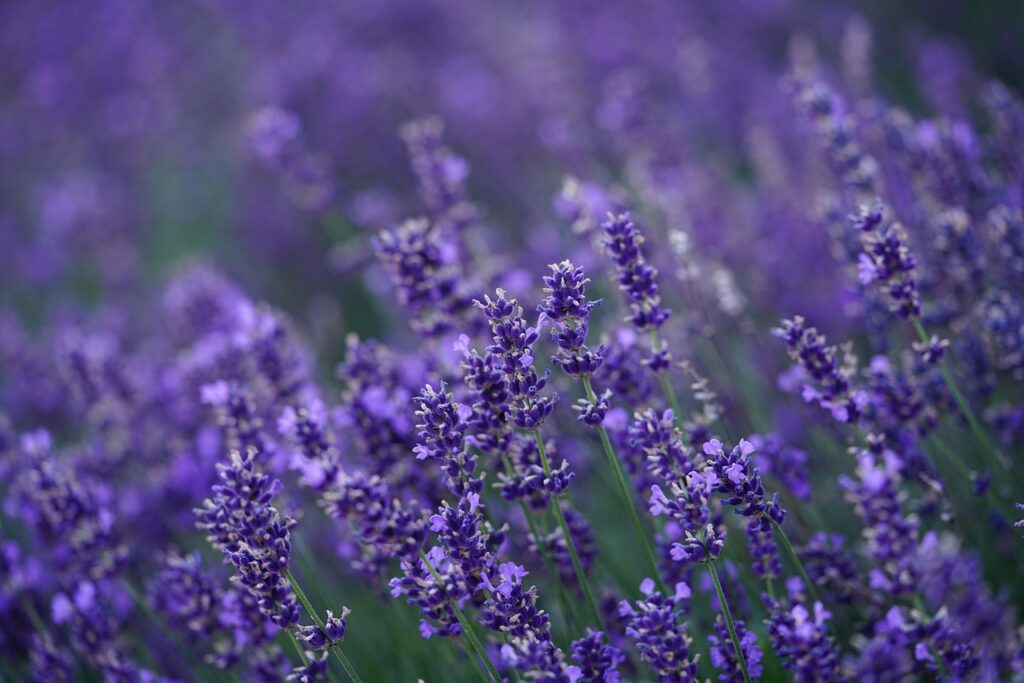윙윙거리고 가려운 물기를 남기는 모기에 지쳤습니다.? 화학 스프레이에 손을 뻗는 대신, 자연적인 해결책을 시도해 보는 것은 어떨까요?? 정원에 멋진 식물을 키워서 성가신 곤충을 쫓아낼 수 있습니다, 안마당, 아니면 실내에서도!
이 블로그에서는, 모기를 쫓아내는 데 가장 좋은 식물을 살펴보겠습니다. 아름다워요, 향기로운, 그리고 관리하기 쉬운. 정원 가꾸기를 좋아하시거나 모기가 없는 곳을 원하시거나, 이 녹색 친구들이 당신을 도와줄 거예요. 당신의 공간을 평화로운 공간으로 바꿔보세요, 벌레 없는 천국!
모기를 쫓아내는 데 가장 좋은 식물과 그것이 작동하는 이유

어떤 식물이 모기를 쫓아내는지, 어떤 향기가 모기를 쫓아내는지 궁금합니다.? 모기를 퇴치하는 최고의 식물은 자연스럽게 정원에 매력과 기능을 모두 가져다줍니다.. 신선한 향기와 활성 화합물이 모기의 후각을 방해합니다., 야외 공간에 색상을 추가하는 동시에 물림을 줄이는 데 도움이 됩니다..
키우기 쉬운 모기 퇴치 허브
시트로넬라
- 향기: 신선한, 시트로넬라 오일의 레몬향, 잎이 으깨졌을 때 가장 강하다.
- 작동하는 이유: 시트로넬랄 함유, 시트로넬롤, 그리고 게라니올, 모기 후각 수용체를 방해하는 물질, 인간의 냄새 신호를 가리고 호스트를 찾는 행동을 혼란스럽게 함.
- 모기 효과: 현장 연구는 다음과 같은 결과를 보여줍니다. 50% 시트로넬라를 좌석 공간 근처에 전략적으로 심을 경우 반경 1~2미터 내 모기 착륙 횟수가 줄어듭니다..
- 성장 조건: 햇볕이 잘 들고 비옥한 곳을 선호합니다, 배수가 잘되는 토양. 컨테이너에서 번성, 높은 침대, 또는 정원 경계; 정기적인 트리밍은 더 강한 오일 생산을 촉진합니다..
박하 (박하 & 스피어민트)
- 향기: 모기를 퇴치하고 사람에게 상쾌한 향을 선사하는 강한 멘톨 향.
- 작동하는 이유: 멘톨 및 관련 화합물은 모기의 이산화탄소 및 젖산 감지를 차단합니다., 호스트 매력 감소. 멘톨은 또한 모기 유충에게 약한 신경독으로 작용할 수 있습니다..
- 모기 효과: 실험 계획에서는 밀집된 민트 재배지 근처에서 성체 모기 활동이 25~35% 감소했다고 보고합니다..
- 성장 조건: 부분적 또는 완전한 햇빛과 습기를 선호합니다., 영양이 풍부한 토양. 공격적인 확산자; 과도한 성장을 방지하기 위해 용기 심기를 권장합니다..
로즈마리
- 향기: 우디하고 수지 같은, 시네올과 장뇌가 풍부.
- 작동하는 이유: 휘발성 오일은 모기 감각 뉴런을 방해합니다.; 잎을 태우거나 으깨면 반발성 화합물의 방출이 강화됩니다..
- 모기 효과: 평가판은 다음까지 표시됩니다. 30% 로즈마리가 있는 파티오나 정원 가장자리에 모기가 착륙하는 횟수 감소.
- 성장 조건: 완전한 태양이 필요합니다, 배수가 잘되는 토양; 가뭄에 강한. 울타리에 적합, 국경, 또는 컨테이너 재배; 가지치기를 하면 잎의 밀도와 기름 함량이 증가합니다..
바질 (레몬 & 계피 품종)
- 향기: 감귤류 또는 매운 향, 잎이 으스러지면 강화됨.
- 작동하는 이유: 에센셜 오일 유제놀, 시트로넬롤, 메틸 샤비콜은 모기 숙주 탐색 경로를 방해합니다..
- 모기 효과: 모기와의 만남을 대략적으로 줄입니다. 30% 잘 심어진 지역에서; 또한 꿀벌과 같은 유익한 수분 매개자를 끌어들입니다..
- 성장 조건: 햇볕이 잘 들고 배수가 잘 되는 토양을 선호합니다.; 정기적인 수확은 오일 농도를 높이고 더 많은 성장을 촉진합니다..
모기를 자연적으로 쫓아내는 꽃 피는 식물
라벤더
- 향기: 달콤한, 꽃향기, 꽃이나 잎을 만지면 더 강해진다.
- 작동하는 이유: 리나룰과 리나릴 아세테이트는 모기 후각 수용체를 방해합니다.; 이 화합물은 또한 모기를 유인하는 고인 물 병원균을 줄일 수 있는 약한 항균 특성을 가지고 있습니다..
- 모기 효과: 안뜰이나 통로를 따라 라벤더를 심으면 모기의 착륙을 최대 40%; 또한 공기 질과 정원 미학을 향상시킵니다.. 그만큼 라벤더 에센셜 오일 꽃에서 추출한 성분으로 모기 퇴치 효과가 강해 실내에서도 널리 사용됩니다..
- 성장 조건: 햇빛이 가득하고 배수가 잘되는 토양; 초여름부터 가을까지 꽃이 핀다; 한번 확립되면 가뭄에 강한.
메리골드 (프랑스 국민 & 아프리카 품종)
- 향기: 날카로운, 티오펜과 리모넨으로 인해 약간 매운 향이 납니다..
- 작동하는 이유: 티오펜은 천연 살충제 역할을 합니다., 모기 신경계 교란; 리모넨은 다른 작은 정원 해충도 쫓아냅니다..
- 모기 효과: 국경은 인근 물에서 유충 발달을 15~20%까지 줄일 수 있습니다.; 또한 정원 가장자리를 시각적으로 향상시킵니다..
- 성장 조건: 가득 찬 태양, 평균 또는 척박한 토양을 견딜 수 있습니다.; 적당한 급수; 데드헤딩으로 인해 블룸 기간이 연장됩니다..
국화
- 향기: 피레트린이 함유된 흙향, 이는 활성 살충 화합물이다..
- 작동하는 이유: 피레트린은 모기 나트륨 채널에 작용합니다., 일시적으로 마비시키고 착륙률을 감소시킵니다..
- 모기 효과: 빽빽하게 식재하면 넓은 정원 구역에서 모기 활동이 감소합니다.; 다른 퇴치 식물과 시너지 효과를 발휘합니다..
- 성장 조건: 다양한 토양에 적응 가능; 완전한 태양; 정기적인 가지치기는 식물의 밀도를 유지하고 꽃이 피는 시간을 연장시킵니다..
향기로운 제라늄 (레몬 & 장미 품종)
- 향기: 강한 시트러스 향이나 꽃 향, 나뭇잎을 만지면 방출됨.
- 작동하는 이유: 따뜻한 날씨에는 에센셜 오일이 휘발됩니다., 모기가 피하는 화학적 장벽 만들기.
- 모기 효과: 파티오 주변의 모기를 격퇴합니다., 발코니, 그리고 창틀; 또한 수분매개자를 유인한다..
- 성장 조건: 컨테이너나 정원 침대에서 번성합니다.; 햇볕이 잘 들고 배수가 잘 되는 토양; 정기적인 가지치기는 오일 생산량과 식물 활력을 향상시킵니다..
모기 퇴치 특성을 지닌 관목 및 기타 녹지
레몬밤
- 향기: 밝은, 시트로넬랄 및 관련 오일의 감귤류 향.
- 작동하는 이유: 사람의 냄새를 가려 모기가 정착하는 것을 방지합니다.; 오일은 DIY 구충제 스프레이에도 사용할 수 있습니다..
- 모기 효과: 촘촘한 패치는 그늘진 곳이나 햇볕이 잘 드는 곳에서 모기 활동을 눈에 띄게 감소시킵니다..
- 성장 조건: 부분적인 그늘을 선호합니다; 촉촉한, 옥토; 확산을 통제하기 위해 컨테이너 식재 권장.
개박하 (네페타 카타리아)
- 향기: 강한, 네페탈락톤의 매운 향.
- 작동하는 이유: 네페탈락톤은 모기 후각 뉴런에 결합합니다, 호스트를 찾지 못하도록 방지; 실험실 연구에 따르면 비슷한 농도에서 DEET보다 최대 10배 더 효과적일 수 있습니다..
- 모기 효과: 작은 정원에 보호 경계를 만듭니다.; 성충 모기 활동이 크게 감소했습니다..
- 성장 조건: 완전한 태양 또는 부분적인 그늘; 강건하고 스스로 씨를 뿌리는; 왕성하게 자라다, 국경 또는 제기 침대에 이상적.
레몬 유칼립투스 (유칼립투스 시트리오도라)
- 향기: 잎에서 강한 신선한 레몬 향이 난다.
- 작동하는 이유: PMD가 포함되어 있습니다. (파라멘탄-3,8-디올), WHO 지침에서 권장하는 잘 문서화된 모기 퇴치 화합물.
- 모기 효과: 넓은 정원에서 매우 효과적입니다.; 잎을 수확하여 천연 스프레이를 만들 수도 있습니다..
- 성장 조건: 가득 찬 태양; 배수가 잘되는 토양; 일단 확립되면 더위와 적당한 가뭄을 견딥니다..
모기 퇴치를 위해 식물을 선택하는 이유?

화학적 방충제의 숨겨진 비용
DEET와 같은 화학 스프레이는 효과가 빠르지만 위험이 따릅니다.. 자주 사용하면 피부에 자극을 줄 수 있음, 어린이나 애완동물에게 영향을 미침, 수분 매개자나 토양 유기체에 해를 끼칩니다.. 시간이 지남에 따라, 화학 물질에 대한 의존은 정원의 생태계를 약화시킵니다, 토양의 질을 저하시킨다, 모기와 파리를 쫓아내는 식물의 장기적인 이점을 제한합니다..
식물 기반 모기 방제의 장점
모기와 파리를 쫓아내는 식물을 선택하는 것이 더 안전합니다., 지속 가능한 옵션. 이 허브와 꽃은 향기를 더해줍니다, 색상, 화학물질 노출을 줄이면서 생물다양성과. 일단 설립되면, 유지 관리가 거의 필요하지 않습니다, 시간이 지남에 따라 비용이 절감됩니다., 수분매개자를 지원하다, 토양 구조를 개선합니다. 화학적 스프레이는 야외 공간에 제공할 수 없는 이점을 제공합니다..
모기 구충제 식물을 심고 관리하는 방법

올바른 위치를 선택하세요
햇빛과 토양
대부분의 모기 퇴치 식물은 곤충을 퇴치하는 오일을 생산하기 위해 최소 6시간의 햇빛과 배수가 잘 되는 토양이 필요합니다.. 시트로넬라 등 허브를 올려놓으면, 로즈마리, 햇볕이 잘 드는 국경이나 빛이 있는 높은 침대에 바질을 심으세요, 옥토, 더 강한 향기를 발산하고 정원을 더욱 안정적으로 보호해 줍니다..
정원 주변 배치
화분이나 침대를 테라스 가까이에 배치하세요., 문, 야외에서 시간을 보내는 좌석 공간. 입구 근처에 시트로넬라 또는 바질 용기 몇 개를 놓으면 화학 물질을 사용하지 않고도 사람이 많이 다니는 지역에서 모기의 존재를 줄이는 데 도움이 되는 향이 나는 장벽이 만들어집니다..
정기적인 관리를 실천하세요
물주기 및 비료주기
라벤더, 로즈마리와 같은 식물의 뿌리 부패를 방지하려면 물을 깊게 주되 자주 주지 마십시오.. 균형잡힌 서방형 비료를 계절에 한두 번 주면 건강한 성장에 충분합니다.; 질소가 너무 많으면 아로마 오일이 감소하고 기피력이 약해집니다., 그러니 피드를 편하게 보세요.
가지치기와 데드헤딩
새로운 자극을 주기 위해 정기적으로 허브와 관목을 다듬습니다., 석유가 풍부한 성장. 메리골드나 라벤더 등 꽃이 피는 식물에서 다 쓴 꽃을 제거하는 경우, 개화 기간을 연장하고 귀하와 귀하의 손님을 위해 가장 강한 향기를 유지합니다..
보호 결합 및 강화
식물 페어링
허브를 섞으세요, 월경, 정원 주변에 겹치는 향기 층을 만드는 관목. 예를 들어, 라벤더와 캣닢 또는 메리골드와 바질을 함께 사용하면 모기를 혼란스럽게 하고 한 식물만 사용할 때보다 더 탄력 있는 장벽을 구축합니다..
나뭇잎의 추가 사용
신선한 민트 잎을 으깨세요, 바질, 야외에 있을 때 단기 억제를 위해 손에 시트로넬라 또는 시트로넬라를 농축하여 향기를 발산합니다.. 창문이나 문 근처에 말린 잎을 놓으면 화학 물질 없이 실내에 자연 보호막을 추가할 수 있습니다..
최종 생각
파리와 모기를 쫓아내는 식물을 사용하는 것은 안전할 뿐만 아니라 집과 정원에 매력과 향기를 더해줍니다.. 최고의 모기 구충제 식물을 전략적으로 배치하고 잘 관리함으로써, 자연스러운 모습을 연출할 수 있습니다, 신선함을 즐기면서 성가신 모기를 멀리하는 쾌적한 장벽, 차분한 향기.
고품질을 찾으시는 분들을 위해, 친환경 모기 퇴치 솔루션, 울리 편안함과 안전을 염두에 두고 설계된 제품을 제공합니다.. 오늘부터 모기 보호 강화를 시작하고 탐색해 보세요. Oully의 전체 범위.
















